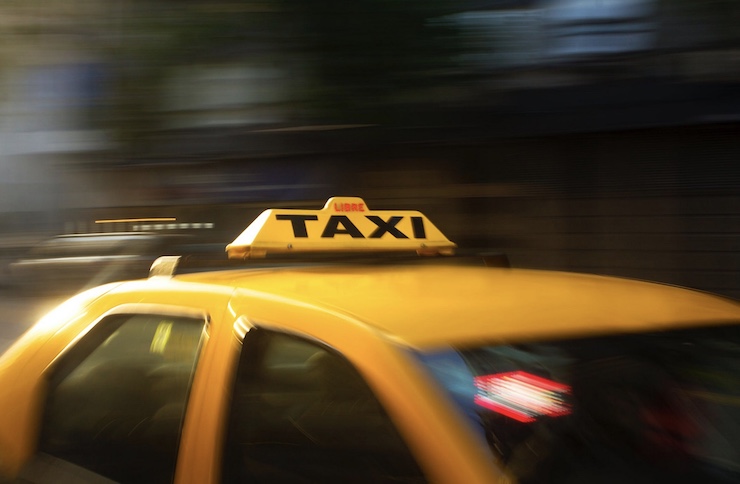Drone Taxis: Next-Generation Drone or Futuristic Fantasy?

Is the “Jetson” age finally upon us? If you talk to some in the drone industry, flying automobiles are just around the corner. But are they? Sure, the technology is there, or almost there, to support a drone that can carry passengers, or more likely, a single passenger, but is there a legal and regulatory framework that can accommodate passenger drone air traffic?
Some firms are working out the complicated details of an Unmanned Traffic Management system or UTM, but integrating that system with existing road and air traffic systems is still a stretch. Where will public agencies or private air transit companies launch, recharge and store their vehicles? Some say they might use rooftops; others, that they’ll use a separate transit network, like trains and subways, with their own depots, and might piggyback on or parallel existing stations with regular stops and timetables.
Uber hopes its drone taxis will service customers on-demand, with a special app, just like its road taxis do. But Uber’s taxis can’t just fly around all day waiting for customers, can they? Where will they “park”?
Another company, named of all things, “Jetson,” has a different idea. Its drones are designed for the individual driver, just as the Jetson vehicle in the 1960’s cartoon was. It’s lightweight (just 160 pounds), flies at about 65 mph tops, and can accommodate a pilot weighing no more than 210 pounds. Unlike the Joby 164, a rival system, which is essentially an electric VTOL vehicle, and would require FAA pilot certification, the Jetson drone is so lightweight that anyone who owns one can fly it without a license. Jetson envisions its new drone as primarily a recreational vehicle, not a commercial one. It might cost about $90,000, the price of an expensive new luxury car.
So the technology is there and some of the industry’s best minds are working on the logistics. The FAA even has a special committee set up to study and support the development of passenger drones, which addresses the attendant UTM and safety, liability and privacy issues. Drones are currently prevented from flying above 400 feet to avoid interfering with conventional air traffic. Will the new passenger drones have their own right-of-way, and even more controversially, will they, at some point, be able to fly autonomously?
But assuming all these issues can be addressed – and eventually they might be – there’s a larger societal issue in play. Who can afford the new drones, either for purchase or for regular use? While some flying taxis enthusiasts envision costs declining to the point where just about anyone could call for a Jetson the way they dial up an Uber, critics say the introduction of air taxis, and worse private Jetson-like vehicles, will only exacerbate existing transportation inequalities.
The super rich will have the luxury of using them at will, much like they do their private helicopters and jets, and will receive government subsidies and access rights while working stiffs and the poor will be stuck with conventional mass transit, much of it in need of constant repair and upgrade. And adding insult to injury, they’ll be stuck at their stops watching helplessly as those premium-priced flying taxis soar overhead.
Is it really feasible, politically, in large urban metropolitan areas dominated by minority and poor populations, for local governments to sell Urban Air Mobility as “progress” for the masses? No one knows for sure but there’s an evident mismatch between the heady plans and expansive vision of passenger drone enthusiasts and the gritty social realities and inevitable political bottlenecks of urban life.
Flying taxis may not crash due to mechanical failures and they may eventually get off the ground. But their launch date has already been postponed for nearly a decade – for good reason. Without some major new stakeholder push – perhaps from the Defense Department, which is anxious to introduce autonomous troop transports – it would seem that the Jetson era is still far in the future.
|